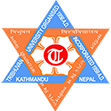There was an invited talk by Dr. Rajeev Kumar Kanth on 3rd July (Wednesday), an alumnus of the first batch (2051 BEX) of the department in the topic “Internet of Things and its impacts on Health and Manufacturing”.
Dr. Rajeev Kanth received Doctor of Science (D.Sc.) in Information and Communication Technology from the University of Turku, Finland, in 2013. He is currently working as an Associate Professor at the Savonia University of Applied Sciences, Finland where he is focusing on teaching and research on Industrial Internet of Things (IIoT).
Summary of the talk:
How the Internet of Things revolution will dramatically alter manufacturing, energy, agriculture, transportation, and other industrial sectors of the economy. It will also fundamentally transform how people will work through new interactions between humans and machines. Dubbed the Industrial Internet (of Things), will bring along with new risks, to business and society. It will combine the global reach of the Internet with a unique ability to directly control the physical world, including the machines, factories, and infrastructure that define the modern landscape. How it will affect existing industries, value chains, business models, and workforces.
The Digital Health sector Ecosystem comprises of research, product development, innovation, companies, hospitals, research centers, manufacturers of the field. The public and the private sector of digital health are included in the Ecosystem. Some systems pay for, coordinate, and deliver care. There are also systems that help people self-manage a lifestyle goal or healthcare condition.Platforms provide the connected infrastructure that enables service providers and consumers to exchange value. Healthcare enterprises also need a rich and robust portfolio of digital partners to form their future business ecosystems.
Ecosystems will extend beyond technology to connect the capabilities, expertise, and services that touch healthcare organizations, consumers, and clinicians. Healthcare organizations that take a leadership role in transformation realize that the strategic platform and ecosystem decisions they make today determine their future success.
How the Internet of Things revolution will dramatically alter manufacturing, energy, agriculture, transportation, and other industrial sectors of the economy. It will also fundamentally transform how people will work through new interactions between humans and machines. Dubbed the Industrial Internet (of Things), will bring along with new risks, to business and society. It will combine the global reach of the Internet with a unique ability to directly control the physical world, including the machines, factories, and infrastructure that define the modern landscape. How it will affect existing industries, value chains, business models, and workforces.
The Digital Health sector Ecosystem comprises of research, product development, innovation, companies, hospitals, research centers, manufacturers of the field. The public and the private sector of digital health are included in the Ecosystem. Some systems pay for, coordinate, and deliver care. There are also systems that help people self-manage a lifestyle goal or healthcare condition.Platforms provide the connected infrastructure that enables service providers and consumers to exchange value. Healthcare enterprises also need a rich and robust portfolio of digital partners to form their future business ecosystems.
Ecosystems will extend beyond technology to connect the capabilities, expertise, and services that touch healthcare organizations, consumers, and clinicians. Healthcare organizations that take a leadership role in transformation realize that the strategic platform and ecosystem decisions they make today determine their future success.








